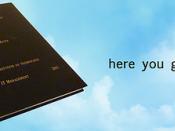Sir Francis Bacon once said, "Knowledge is power." In today's society, this statement is truer than ever. With success in the professional and academic worlds measured by intellectual achievements, being an educated adult is vital to success in America. Employer's are not looking for a person simply proficient in one form of study, but seek someone who is well rounded with many different intelligences. In America, the educated adults are the leaders and their functions are extremely important.
While the need to be an educated adult is seldom debated, defining the characteristics of this type of person is tricky. Traditionally, an educated adult has been viewed as a person who is well read in classic literature and knowledgeable in western philosophy. (Denby, 1997) Other's call a person who has the qualities of career readiness, leadership, social responsibility, intercultural understanding, and the willingness to be a life long learner educated. (Alexander, 2002).
Fort Hays State views an educated adult as a person who is knowledgeable, civic, reflective, and holistic. (2001) While all of these describe a view of an educated person, a better definition can be formed by combining aspects of all three.
The traditional definition talks about a classic education. A person, who understands the philosophy of Rousseau, Hobbes, Locke, and Sophocles, has long been viewed as educated. Understanding this type of philosophy is important, but not for the sake of just knowing it. Many of these philosophies have shaped the birth and continued existence of America. Rousseau proposed the social contract that became the basis of the US constitution, itself a model for most of the current world's democracies. Hobbes theories of human nature and government can be seen in the majority of conflict today. Knowing the philosophical basis of some of the decisions can help to either support...



Good job
great grammar
0 out of 0 people found this comment useful.